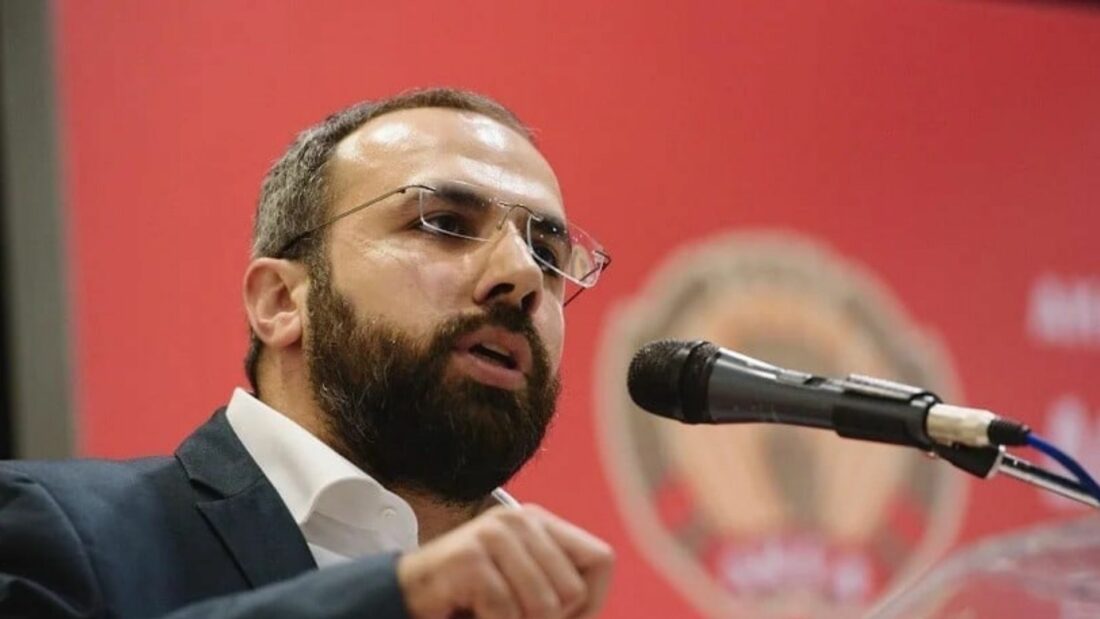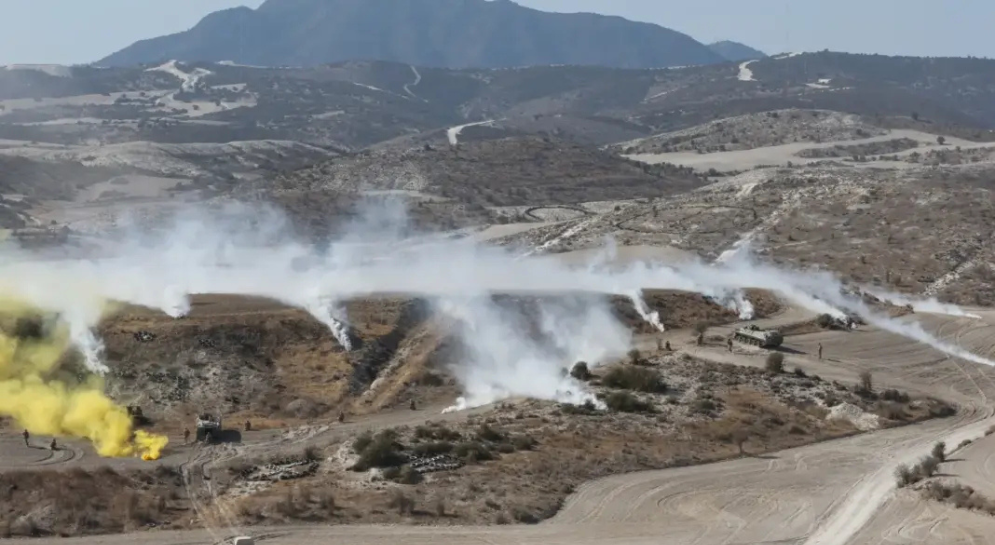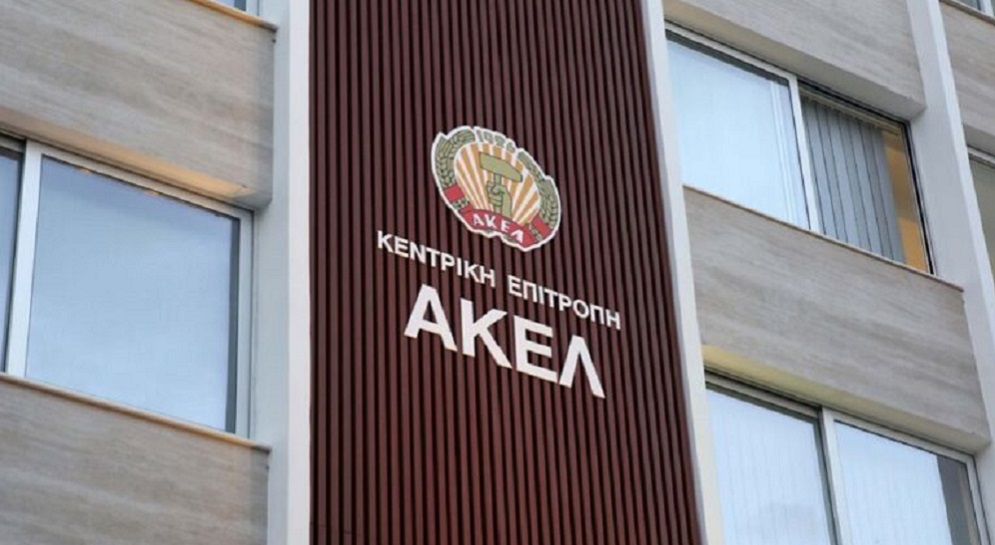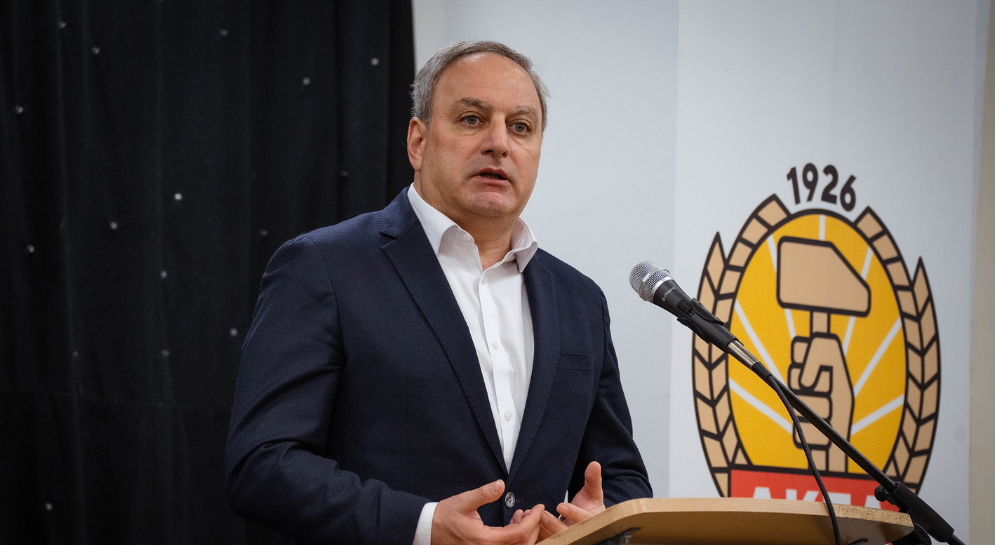
Decisive initiatives needed to prevent the final partition of Cyprus
25 July 2021, ‘Haravgi’ newspaper
Article by Giorgos Koukoumas, member of the C.C. of AKEL and AKEL Famagusta district MP
The 47th anniversary of the coup d’état and invasion finds Cyprus on the brink of a new, historic and painful defeat. Three facts suggest that the Cyprus problem, but also Cyprus itself, is at its worst and most dangerous point since 1974.
Firstly, the occupying power Turkey – both at sea and on land – is planning new, devastating fait accompli on our country. The colonisation of the enclosed area of Famagusta will represent one crime on top of another, part and parcel of the strategy for the definitive and irreversible partition of Cyprus.
Secondly, things are being discussed on the Cyprus problem that were unthinkable until yesterday, such as whether to abandon the solution of bizonal, bicommunal federation, namely reunification itself, and for partitionist solutions to be sought, whether they are direct or indirect. Circles, both inside and outside the island, are sounding out for a “middle ground” to be found between federation and confederation.
Third and worst of all, while all this is happening, the international community is unwilling to hold Turkey accountable in practice for its actions and demands and for its flagrant disregard of international law and the resolutions of the UN.
There is no doubt at all that the situation is generating frustration and, for many, perhaps even the thought of abandoning the idea of a solution and reunification. Nevertheless, for AKEL giving up at the same time as Erdogan is planning the colonisation of the enclosed area of Famagusta and the final division of our island is not an option. We believe that there is a glimmer of hope that can keep the hope for a solution alive, which, of course, if it is not to be some abstract wishful thinking, must assume content with decisions and actions.
The question “what should we do now that we have arrived at this point?” cannot be answered unless we first answer the following question – “why have we got to this point?” First and foremost, no one can deny that Erdogan’s Turkey and the Ersin Tatar Turkish Cypriot leadership with their insistence on a two state solution and their flagrant disregard are the first and biggest problem. Nor can one ignore the enormous interests that link the US and the EU with Turkey, but also the political hypocrisy of the West, which is effectively encouraging Turkish aggression. It is significant that the EU is not only not seeking to impose sanctions on Ankara, but has instead opened up the discussion for the upgrading of the EU-Turkey Customs Union which would expand Euro-Turkish trade relations.
At the same time, however, there are questions being raised concerning the Greek Cypriot side that await an answer, if only to draw lessons from the experience of recent years.
Why did we not go ahead with talks when Akinci was the leader of the Turkish Cypriot leadership, who was committed to the solution of bizonal, bicommunal federation and the Guterres framework?
Why, all through this period, instead of prioritizing the solution of the Cyprus problem, were the myths of imposing “sanctions that will bring Turkey to its knees” and the forging of “trilateral alliances that will protect Cyprus” systematically cultivated?
At this stage, these are only relevant to the extent that they guide us as to what to do from now onwards. And it is precisely these that stress what AKEL has been proposing for a long time. That is to say, decisive and convincing initiatives need to be taken immediately to strengthen the credibility of the Greek Cypriot side internationally and to open up avenues of understanding with the forces in the Turkish Cypriot community which are resisting the plans of Erdogan and Tatar. Initiatives should be taken towards the Turkish Cypriot community, but also in all directions, aiming at the resumption of the talks on the agreed basis and framework, from the point where they were interrupted in 2017 at Crans Montana. A return to this point would also mean that the Turkish side would have to bring back to the negotiating table the map on Territory with Famagusta under Greek Cypriot administration.
No one can be absolute in his/her predictions. But our assessment is that this is the path that has the best chance of success in the effort to halt the final partition and reverse the course of events.
After four years of dangerous drifting here and there, backtracking and regressions, we return to what we have always known, in the hope that it is not too late: Only the path of the solution of the Cyprus problem, liberation and reunification, can save the lawful inhabitants of Famagusta, but also the future of the whole of Cyprus.




